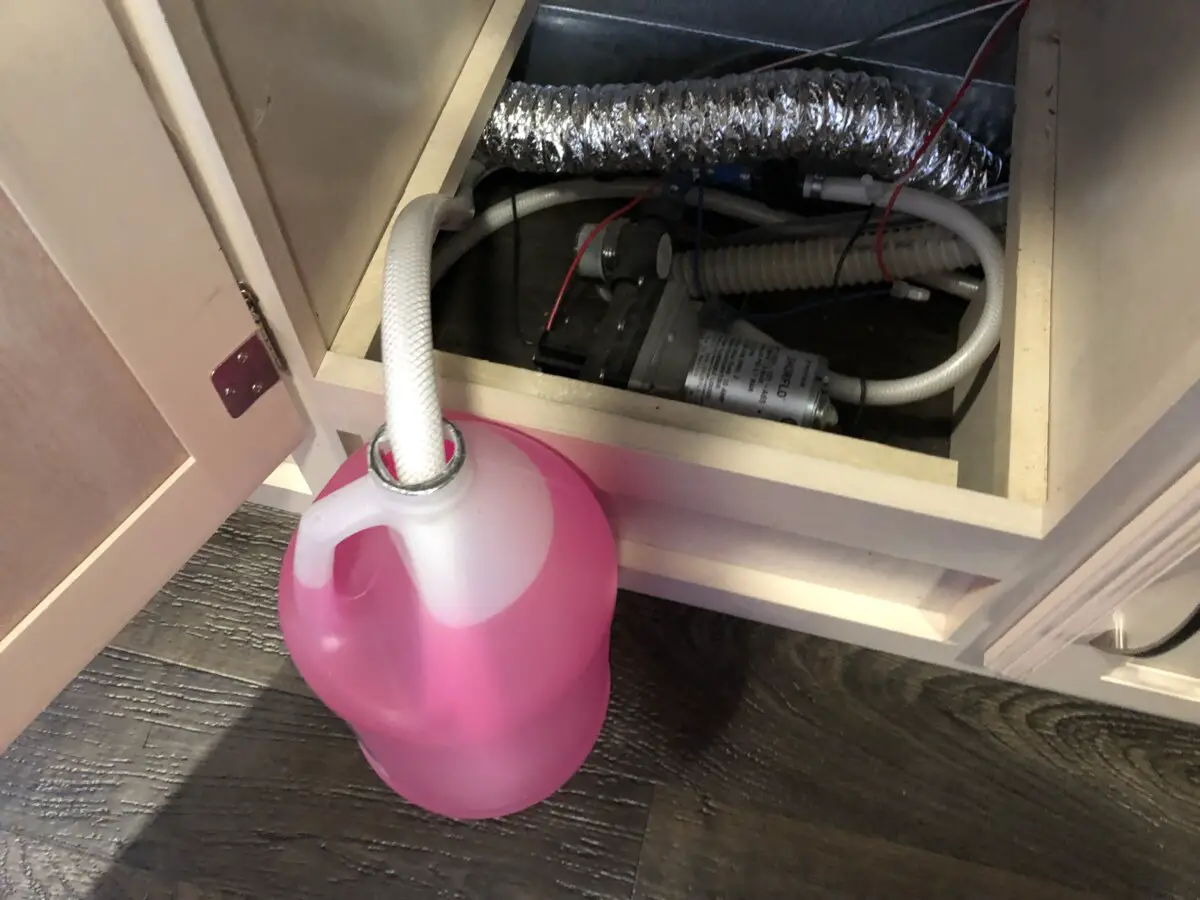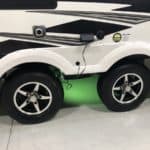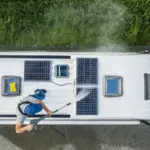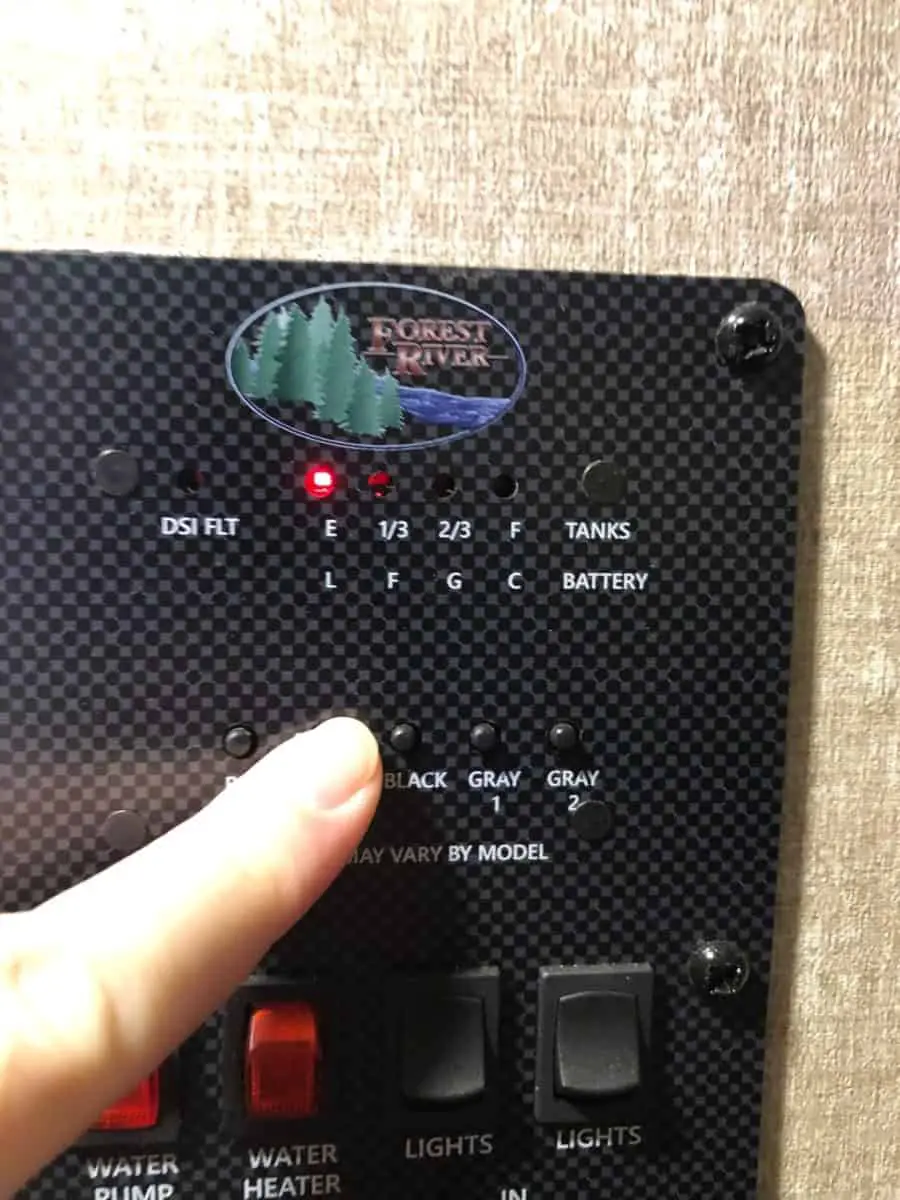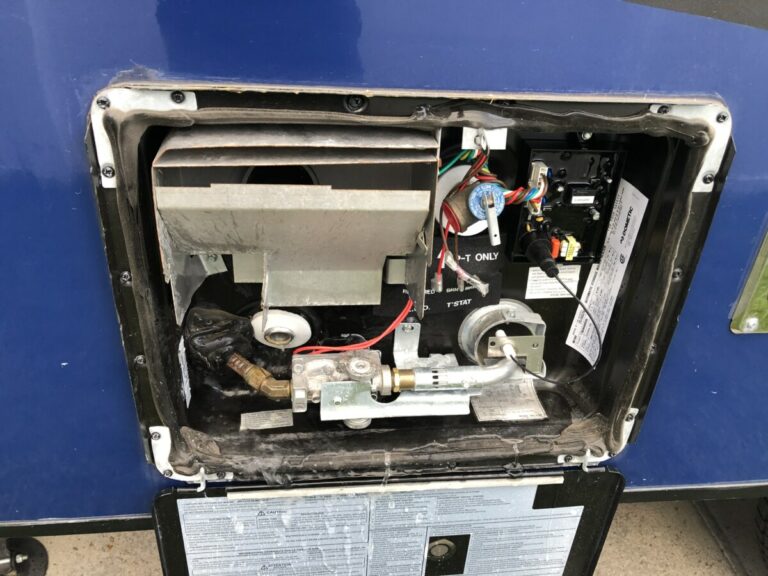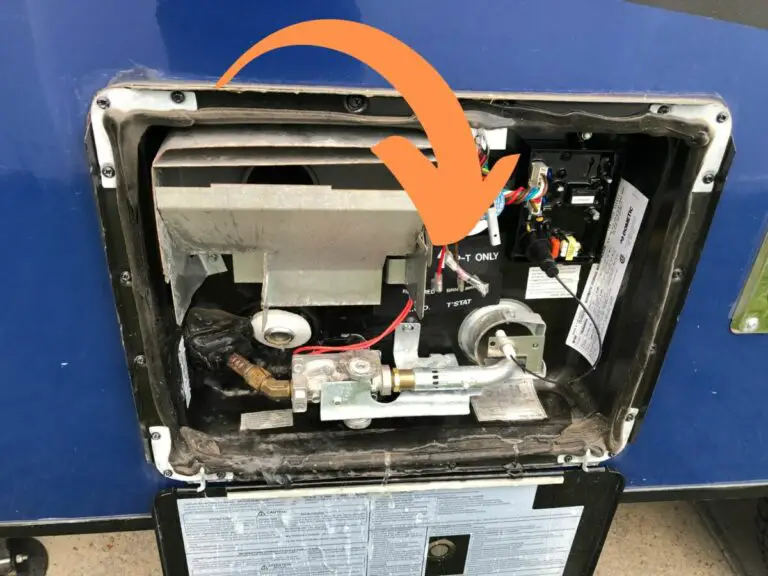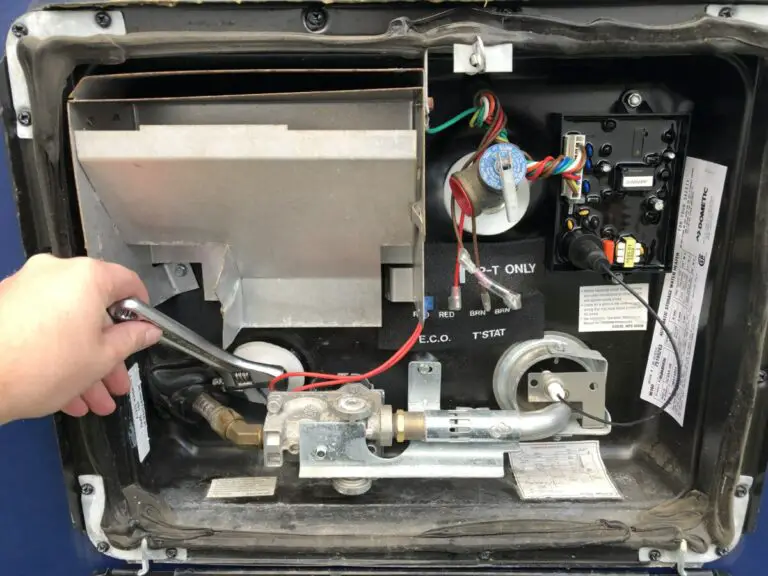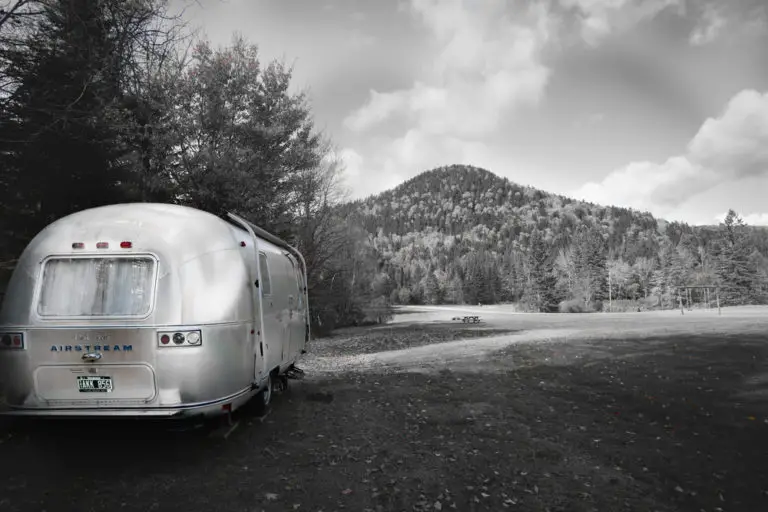Antifreeze in RV Water Heater: Causes and Solutions for Safe Winterization
Finding out that your antifreeze has gotten into your RV water heater is never really a pleasant surprise! Although, dealing with the issue is easy if you know how to flush it out and prevent it from happening in the future.
If antifreeze gets in an RV water heater, it should not cause any harm to it. However, the antifreeze will definitely damage your water heating system if it contains anodes. So, most RV water heating tank manufacturers advise against using it to winterize tanks.
There’s no doubt that antifreeze is effective in winterizing your RV. Still, the fact remains that it does not belong in your water heating tank. So, you should read on if you want to find out why it happened and how to best flush it out!
Why Would Antifreeze Be In Your RV Water Heater?
If you happen to detect traces of antifreeze in your RV water heater when the bypass valve is used to winterize your RV. You probably have a faulty check valve or bypass valve.
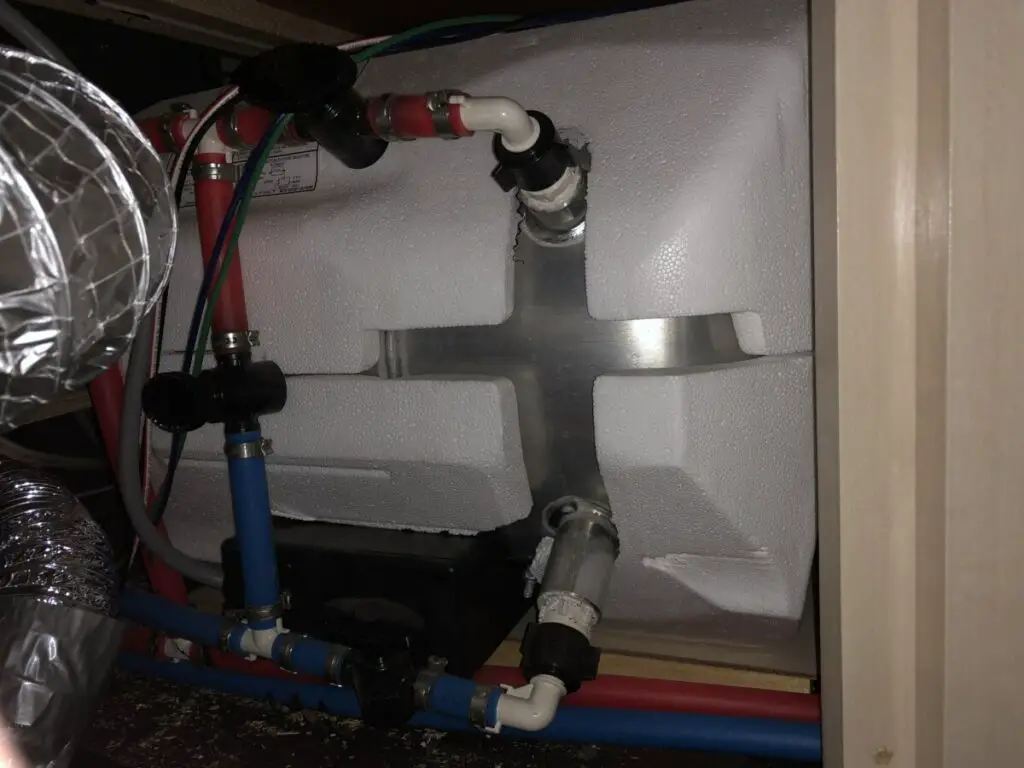
The water heater’s check valve is supposed to stop any water or antifreeze from flowing back into the water heater when you pressurize your plumbing system. Thus, you will need to replace the water heater check valve, to prevent this issue from happening again.
If you need a detailed guide on how to winterize your RV, here’s a step by step guide how to do it properly.
What Happens If Antifreeze Gets Into An RV Water Heater?
You don’t have to panic if you discover antifreeze in your RV’s water heating tank, although it can cause some problems that you need to be aware of.
Potential Risks And Dangers Of Antifreeze In Your RV Water Heater
While antifreeze won’t necessarily damage your water heater tank, especially if you flush it out in spring, most RV manufacturers advise against using it.
Modern water heating tanks are equipped with bypass valves, which means that you don’t need antifreeze if all the water has been drained.
Although, if your tank contains anodes to prevent corrosion, antifreeze can damage them. So, you will need to flush out your water tank in that case.
Indications That Antifreeze Got In Your RV Water Heater
Antifreeze has a distinctive aroma and taste. And non-toxic RV antifreeze products are predominantly pink.
So, it’s typically easy to detect antifreeze in your water heating system, as it will definitely be noticeable.
How To Prevent Antifreeze From Getting In Your RV Water Heater?
While winterizing your RV and preventing antifreeze from damaging your water heater takes a little work, it’s worth it if you want to avoid a potentially costly repair. First, however, review your RV water heating system manual before you start preparing your RV for the winter months.
Use A Water Heater Bypass
Start by turning off your water heater’s gas or electric energy source. Then empty the liquid out and proceed to sanitize your gray and black tanks.
Once the water heater is cool to the touch, look for your bypass valve, and switch on the bypass mode. Then open all your RV faucets, including your outdoor showers.
Next, turn on your water pump to eliminate any remaining water in your water lines. Lastly, empty your water heating tank’s drain valve, and leave it open once all the leftover water has been removed.
Winterize Your RV With Compressed Air
When your water heating tank is thoroughly drained of water, it’s time to get rid of any remaining water droplets that may freeze in winter.
All you really need to do is attach your compressor, at a low pressure from 30-50 psi, to your heater’s water inlet and start it up to remove any remaining moisture.
While it might sound easier to simply add some antifreeze to winterize your RV and be done with it, you will need to drain it in spring.
So, using this natural method to winter-proof your RV without using gallons of antifreeze is worth it in the long run.
How To Flush Antifreeze From Your RV Water Heater?
The quickest and most efficient way to flush out the antifreeze from your entire camper water system, including the water heater, is by following these four steps:
- Start by switching on your RV water pump
- Turn on all your indoor and outdoor faucets, flush your toilet, and run your water until it is completely clear.
- Then turn off your water pump until your entire camper water system, including your water heating tank, has been thoroughly flushed out.
- Lastly, switch off your water heater’s bypass mode, and clear out your black and grey water tanks at a dumping station.
If you want to drain your hot water heater instead of flushing it to save water, here is a step by step guide on how to drain your RV hot water tank and perform maintenance on it.
FAQs
What Happens If Your RV Water Heater Freezes?
If your RV water heater contains water, it will start to expand and contract, and eventually, the metal will start splitting, and you will have to replace your entire water heating system, which can be a costly exercise!
Although, it’s essential to remember that tankless RV water heating systems also retain water, albeit less than a tank. So, you really need to ensure that it is thoroughly dry, as per the manufacturer’s care instructions, before winter sets in.
Is RV Antifreeze Toxic?
Although regular and disturbingly sweet-tasting ethylene glycol-based antifreeze is highly toxic, most certified RV antifreeze products are thankfully safe to use.
Pink-colored RV antifreeze contains propylene glycol, which is even used in preserving food and has been approved by the CDC and FDA. However, avoid using any products containing antifreeze if they are not designed for campers.
Conclusion
It’s only natural to be concerned if antifreeze gets into your RV water heater because your check valve needs to be replaced. Although flushing out antifreeze is relatively simple if you use our tried and tested methods to get you back on the road and doing what you love most.
Be the first to be notified about FREE tips, hints, coupon codes, and email-exclusive information. All for FREE!

